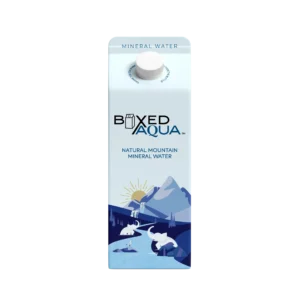Premium alkaline water has received growing interest from health-minded customers as well as people who focus on their wellness during the past few years. Premium Alkaline Water appears as a premium drinking option compared to regular tap or bottled water and promoters its capabilities to enhance hydration while balancing body pH levels and detoxify the system to potentially fight diseases. Which claims about these facts base their truthfulness on solid evidence? Premium alkaline water stands at a tier between medical revolution and marketing assertion of modern wellness trends. This research examines how alkaline water functions along with its medical advantages according to scientific data and evaluates whether acquiring premium alkaline water stands as an intelligent health move.
What Is Alkaline Water?
Drinking water maintains a pH level which exceeds standard water measurements thus becoming alkaline water. The pH scale shows the measure of substance acidity and alkalinity from zero to fourteen. The standard measure to determine neutrality in water is pH 7 because pure water falls at this level. Natural alkaline water formation occurs from rock mineral absorption or through ionization-based water filtration methods that produce water between pH 8 to 9. Premium alkaline water manufacturers add calcium, potassium, and magnesium elements to both increase its pH value and enhance health benefits.
The Alkaline Diet Theory
Premature water consumption through the alkaline water approach derives from a larger belief about alkaline diet principles that explain how food choice influences human body pH regulation. The consumption of modern processed food diets with sugars and meat produces body conditions considered acidic which leads to inflammation of tissues and weakened bones and ultimately heightens cancer risks. According to believers alkaline water works to correct excessive acidity in the body that creates a better internal balance for improved health outcomes.
Human blood preserves its pH between 7.35 to 7.45 under strict body regulation. Complex physiological mechanisms in which the lungs and kidneys maintain this balance control the pH levels within the body. Medical professionals across the board acknowledge that changing blood pH using diet alone or drinking water is an exceedingly challenging task. Urinary pH falls within the purview of alteration but does not serve as a dependable indicator of internal body condition.
Claimed Health Benefits
People who defend premium alkaline water claim that it can lead to several health advantages that include the following benefits:
- Research shows that alkaline water drinking can benefit cellular hydration and provide better hydration when used following intense exercise because of its small molecular cluster structure.
- Research published in the Annals of Otology Rhinology & Laryngology (2012) demonstrated that alkaline water having a pH of 8.8 denatures pepsin which causes acid reflux so people with acid reflux disease can experience better symptoms.
- An ORP-based antioxidant effect is present in ionized alkaline water but current scientific evidence about its benefits in human bodies remains minimal.
- The detoxification process with alkaline water makes it easier to eliminate toxins while better supporting liver and kidney operation. Research evidence fails to prove this claim effectively.
- Several studies have shown evidence that alkaline mineral intake might contribute to better bone density in individuals. Research conducted in Bone during 2009 demonstrated that consuming alkaline-forming foods benefits bone health yet no sufficient proof exists between alkaline water intake and stronger bones.
- Athletes support consumption of alkaline water because it might decrease lactic acid formation during workouts thus extending their exercise capacity. The current evidence from anecdotal reports should be tested in more extensive scientific trials to prove these claims.
What Science Says?
Researchers remain doubtful because initial preliminary studies and so-called anecdotal reports currently show mild evidence. Current research into alkaline water benefits remains limited because extensive clinical trials run by peer-reviewers have not verified numerous claims. Small studies indicate that alkaline water improves hydration but scientific support remains inconsistent between studies. Multiple medical experts reject the full endorsement of acid reflux benefits despite certain evidence supporting this claim.
All types of alkaline water do not share identical characteristics. Spring water that contains natural alkalinity along with mineral content differs from mechanized water solutions produced for alkalinity purposes. Premium alkaline water brands market their natural water sources as well as mineral content since these elements might contribute to certain health advantages experienced by users.
Potential Risks and Considerations
Excessive use of alkaline water produces side effects which affect most individuals but the consumption itself remains generally safe. Excessive drinking of alkaline water can sometimes cause metabolic alkalosis that might manifest as nausea together with vomiting and muscle twitching and confusion as symptoms. People who have kidney problems need to seek medical advice regarding changes in their fluid consumption particularly when using mineral-rich water.
The price of premium alkaline water surpasses both the prices of regular bottled water and tap water. Frequent water consumption for alkaline water does not typically cause financial strain at first but becomes expensive over time without medical evidence of health benefits. Customers need to assess if newly purchased products deliver enough value against their elevated price.
Environmental and Ethical Considerations
As the market demand for premium alkaline water grows stronger so does the consumption of bottled water products. The growing popularity of premium alkaline water production created notable environmental issues because it leads to more plastic waste problems. The full environmental effects of bottled water manufacturing along with distribution and waste management surpass the claims of sustainable packaging used by businesses. Customers interested in sustainable options should look into home-based water ionization systems and filtration systems since these systems give comparable advantages but create lesser environmental damage.












